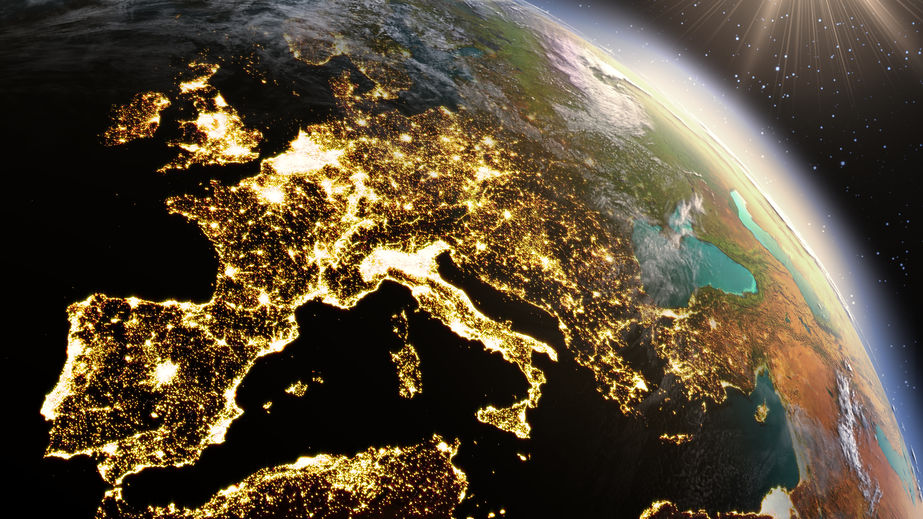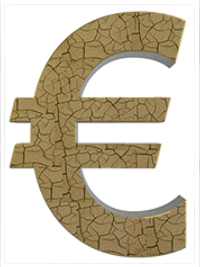
UK close to blackout, while 12% of Germany GDP pays for energy crisis
By Joanna Nova
Green Europe is running out of electrons
 Last Monday in Great Britain the entire steel industry shut down because the wind stopped and wholesale prices reached £2,586 a megawatt-hour. As winter cranks up, British factories are getting ready to shutdown, as the threat of small, medium and blockbuster blackouts loom. In the fifth largest economy in the world, thousands of people are using communal warm spaces because they can’t afford electricity any longer, and the largest North Sea gas producer has decided not to drill for more gas just when the country needs it. The government has slapped a new tax on it, thus achieving the exact opposite of what the government aimed for.
Last Monday in Great Britain the entire steel industry shut down because the wind stopped and wholesale prices reached £2,586 a megawatt-hour. As winter cranks up, British factories are getting ready to shutdown, as the threat of small, medium and blockbuster blackouts loom. In the fifth largest economy in the world, thousands of people are using communal warm spaces because they can’t afford electricity any longer, and the largest North Sea gas producer has decided not to drill for more gas just when the country needs it. The government has slapped a new tax on it, thus achieving the exact opposite of what the government aimed for.
Meanwhile over in Germany one eighth of the entire national economy is now consumed with paying for the energy crisis of 2022. They tried to hold back the seas in 2100 but forgot to secure their own electricity a year in advance.
These are very expensive experiments
They aren’t telling you this, but UK is close to nationwide blackouts
By David Maddox, Daily Express
 But the one nobody is discussing is the real possibility the lights could go out. Two stories this week should set the alarm bells ringing. The first was that Drax had been ordered to put its (mothballed) two coal-fired power stations in North Yorkshire on standby. The second came yesterday when a power cut left 2,800 homes in Shetland without electricity. In one of the coldest snaps in recent history where energy use has been peaking, they underpinned a briefing received by Express.co.uk that Britain is teetering on the edge of a catastrophe.
But the one nobody is discussing is the real possibility the lights could go out. Two stories this week should set the alarm bells ringing. The first was that Drax had been ordered to put its (mothballed) two coal-fired power stations in North Yorkshire on standby. The second came yesterday when a power cut left 2,800 homes in Shetland without electricity. In one of the coldest snaps in recent history where energy use has been peaking, they underpinned a briefing received by Express.co.uk that Britain is teetering on the edge of a catastrophe.
According to someone close to Mr Rees-Mogg [former Business and Energy Secretary], his conclusion was: “If the lights don’t go out this winter or next it will be more luck than judgement.”
His assessment, confirmed by a Whitehall source, was the margins of available energy supply to need were so low that “just one major problem would be enough for the lights to go out.”
The reality is that Whitehall sources and former ministers have confirmed to the Daily Express the well-intentioned headlong pursuit for Net Zero carbon emissions has left the UK in a precarious position.
After becoming the minister Rees-Mogg apparently had to badger staff for two whole weeks just to get an inventory of Britain’s energy supplies. Were they slow because they didn’t want to give him the bad news, or because they had never added them up?
Britain braces for winter of factory shutdowns as freezing conditions strain energy crisis
Jacob Paul, Daily Express
Gareth Stace, director of industry association UK Steel, told the Telegraph that the eye-watering wholesale electricity prices on Monday forced all his members to shut down some production until rates went back to normal.
He said: “We’re just priced out of the market. There would be no point in the energy companies telling our members to turn off, because they know that they will. You just couldn’t keep going, you just lose money for every tonne of steel you make with [energy] prices at these levels.”
Think of what €440 billion euro’s could have done instead?
 That’s how much Germany has spent on energy bailouts and schemes since Russia invaded Ukraine. And it probably doesn’t include another 100 billion euro money bomb that was just approved in the German lower house.
That’s how much Germany has spent on energy bailouts and schemes since Russia invaded Ukraine. And it probably doesn’t include another 100 billion euro money bomb that was just approved in the German lower house.
Germany’s half-a-trillion dollar energy bazooka may not be enough
Reuters
Michael Groemling at the German Economic Institute (IW) said… “The national economy as a whole is facing a huge loss of wealth.”
The money set aside stands at up to 440 billion euros ($465 billion), according to the calculations, which provide the first combined tally of all of Germany’s drives aimed at avoiding running out of power and securing new sources of energy.
That equates to about 1.5 billion euros a day since Russia invaded Ukraine on Feb. 24. Or around 12% of national economic output. Or about 5,400 euros for each person in Germany.
They could have bought 20 nuclear reactors and secured half their electricity supply for decades to come.
Trump warned about this in 2018, but this trainwreck has been coming for twenty years.
From cfact.org